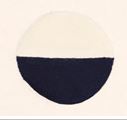Difference between revisions of "48th Battalion"
From Our Contribution
(→Unit Personnel) |
(→Unit Personnel) |
||
| Line 31: | Line 31: | ||
* [[Arthur Candish]] 9 Jun 1916 - 21 Jul 1917 (WIA 1stBullecourt) | * [[Arthur Candish]] 9 Jun 1916 - 21 Jul 1917 (WIA 1stBullecourt) | ||
* [[George Conway MID]] 2 Apr 1916 - 22 Feb 1917 (WIA) | * [[George Conway MID]] 2 Apr 1916 - 22 Feb 1917 (WIA) | ||
| − | * [[Frank Ernest Cousens]] 21 Jun - 7/8 Aug 1916 (KIA - Poziéres) | + | * † [[Frank Ernest Cousens]] 21 Jun - 7/8 Aug 1916 (KIA - Poziéres) |
| − | * [[Herbert (Bert) Cumming]] | + | * † [[Herbert (Bert) Cumming]] 12 Mar - 6 Aug 1916 |
* [[George Weston Firns]] | * [[George Weston Firns]] | ||
* [[Osborne Fisher]] | * [[Osborne Fisher]] | ||
Revision as of 02:50, 3 March 2021
 Shoulder patch | |
 Railway embankment which ran parallel to Hindenburg Line near Bullecourt, AWM photo E01408 | |
Contents
Brief History
The battalion was raised in Egypt on 16 Mar 1916 as part of the expansion of the AIF. It gained experienced men from the 16th Battalion, with the rest new arrivals from regional South Australia and Western Australia. It became known as the Joan of Arc battalion because it "made of all Leanes". Commanded by Lt Col Ray Leane, with his brother as its Adjutant and a number of other relatives scattered throughout the battalion.
Their first major battle in France was at Poziéres where it was tasked with defending the ground won earlier by the 2nd Division units, entering the front lines on two occasions, for three and then four day stints. During their first stint they experienced the heaviest artillery barrage ever thrown at the Australians. Before it could recover it was required to again defend ground, this time at Mouquet Farm.
During 1917 it fought at 1st Bullecourt in France and later at Passchendaele in Belgium, and on both occasion it was forced to withdraw after suffering heavy casualties due to poor planning ab=nd inadequate support. It then wintered in and out of the lines before in spring 1918 playing a crucial role in blocking the main road to Amiens against the German advance.
During the Hundred Days Offensive they fought at Amiens in early August , and the battle to seize the Hindenburg outpost line in mid September. The battalion was disbanded on 31 Mar 1919. During the fighting, it suffered lost 843 killed in action or died on active service and 1,628 wounded.
Unit Personnel
- George Albert Alford 9 Jul 1917 - 3 Apr 1918
- William Henry Baldwin 221 Jun 1917 - 24 Mar 1918
- † Sydney Fenner Blencowe 3 Mar 1916 - 11 Apr 1917 (KIA 1st Bullecourt)
- Thomas Allan Bottrell 26 Apr - 12 May 1916
- William Allan Bovell 2 Apr 1916 - 30 Jan 1919
- Victor Leo Gordon Boyle ?? Apr 1916 - 5 Apr 1918 (WIA & POW)
- Arthur Candish 9 Jun 1916 - 21 Jul 1917 (WIA 1stBullecourt)
- George Conway MID 2 Apr 1916 - 22 Feb 1917 (WIA)
- † Frank Ernest Cousens 21 Jun - 7/8 Aug 1916 (KIA - Poziéres)
- † Herbert (Bert) Cumming 12 Mar - 6 Aug 1916
- George Weston Firns
- Osborne Fisher
- Walter Stanley Fisher
Edward (Ned) Gray William Arthur Green Frank Halliday John William King Alfred Arthur Martin Henry McCavana Robert George McLean Albert John Llewellyn Reed Ernest William George Reed Herbert James Reed Hugh Henry Smith William Dobson Stevens Albert Thomas Ticklie MM John Alexander Trotter
Battle Honours
- Egypt 1916
- Somme 1916-1918
- Poziéres
- Bullecourt
- Messines 1917
- Ypres 1917
- Menin Road
- Polygon Wood
- Passchendaele
- Ancre 1918
- Hamel
- Amiens
- Albert 1918
- Hindenburg Line
- Epéhy
- France and Flanders 1916-18
Individual Honours
- 1 Victoria Cross (Pte James Wood)
- 1 Companion of the Order of St Michael and St George
- 2 Distinguish Service Order, 1 bar
- 33 Military Crosses with 4 bars
- 24 Distinguished Conduct Medals, 1 bar
- 178 Military Medals, 13 bars, one second bar
- 4 Meritorious Service Medals
- 33 Mentioned In Despatches
- 10 foreign awards
Notes
Content for the history and honours sections has come from a combination of Wikipedia and the Australian War Memorial websites.